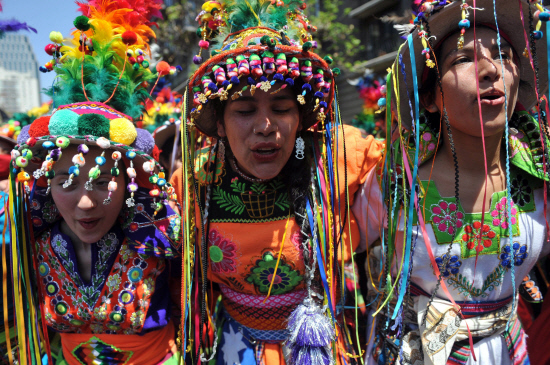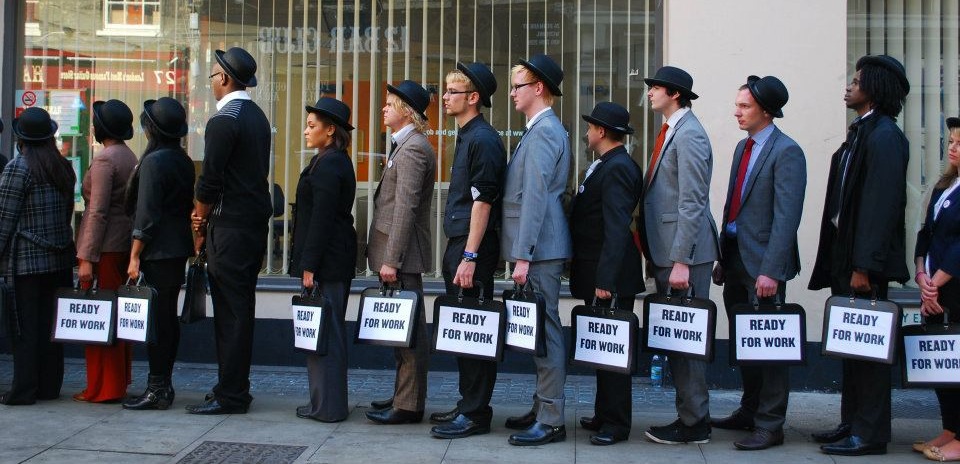“Today Chileans face a new transition, which has set its sights on the future and not the past. This allows us to transform Chile into a developed country without poverty…the challenge is not to forget, but to overcome the past, with a new provision: full of hope and looking to learn from past experiences and avoid making the same mistakes.”
-Chilean President Sebastian Piñera, speaking to the United Nations General Assembly in New York on September 24, 2013
 Mapuche girls marching at a political rally
Mapuche girls marching at a political rally
President Sebastian Piñera’s promise for a more forward-thinking national poverty alleviation strategy resonated most powerfully with the community associated with Chile’s past: the Mapuche. Since the Pinochet dictatorship, this indigenous community in south-central Chile and constituting nearly 10% of the national population, has faced widespread displacement, discrimination and economic abandonment. In this setting, one would assume Piñera’s package of indigenous poverty alleviation programs and economic inclusion strategies would be a long-awaited gift worth accepting. Similarly, the government’s renewed interest in expanding indigenous rights and stimulating indigenous economic development could be seen to validate Piñera’s commitment to a more forward- thinking, democratic and multicultural Chilean society.
How then, in the face of what seems like vibrant democratic growth, can we explain mounting Mapuche claims that indigenous political rights and freedoms are actually deteriorating in Chile? Clearly, it is important to not only critically examine explicitly corrupt and undemocratic states and institutions, but also to critically examine seemingly democratic governments and agencies as well. Sometimes the most devastating human rights abuses occur under a well-concealed guise of development and democratization.
Attractive public employment packages have been offered to self-identified indigenous peoples, adding diversity to the public sector. Innovative social programs creating more culturally-inclusive education and healthcare options have been at the forefront of Piñera’s new “multicultural” Chile. Here, Piñera has differentiated his indigenous policy from old assimilationist strategies by actively demanding the “appreciation and promotion of [Mapuche] history, culture, traditions and language” in the new ChileYet, despite these advancements many Mapuche citizens are unimpressed and often violently opposed to Piñera’s ostensible generosity.
As has been the case in many Latin American nations, Chile’s “forward-thinking” political elite refer to past mistakes when dealing with Mapuche unrest. Despite government support for cultural inclusivity and pro-multicultural policy in some social institutions (like schools and hospitals), Mapuche citizens have been popularly characterized as “terrorists” within the Chilean state when more controversial issues are concerned. These range from claims for autonomous land ownership and self-government to more meaningful decision-making power vis-à-vis multinational corporations seeking to extract resources from Mapuche territories. As such, Mapuche protests have one underlying message: that Piñera’s seemingly- altruistic indigenous development policies do not actually address the deep-rooted asymmetrical power relations which cause Mapuche marginalization, discrimination and poverty in the first place. Despite the rhetoric, Chilean political elites regard Mapuche demands for increased political power as strictly unacceptable.
This has been especially illustrated in clashes between Mapuche demonstrators and the Piñera government over extractive development activities in indigenous territories. In 2004, sixteen Mapuche citizens were charged with “illicit terrorist association” during their protests against a hydroelectric project operating on their ancestral lands. Despite initial judgments that terrorism charges were “inapplicable” to the case at hand, the Chilean Supreme Court overturned these earlier decisions by inexplicably removing the earlier judge from the case entirely. By antagonizing Mapuche demands for increased political rights and economic decision-making power as “terrorist” activity, the Chilean government justifies its restrictions on indigenous political freedoms even further with trialess sentencing, unexplained imprisonments, and other forms of extra-judicial punishment.
With its attractive multicultural and development policies, Piñera’s government has presented an image of an altruistic government coping with an ungrateful and menacing indigenous opponent. But for many, new indigenous development policies are merely a façade for skillfully concealing the devastating human rights abuses and political rights limitations persisting in the so-called “new and improved” Chile.
Indigenous policies in Chile should be treated and understood as a human rights issue, not simply as a development one. Despite the benefits associated with culturally-inclusive school curricula, increased employment opportunities and poverty eradication programs, these apolitical development strategies do not get to the core of deep-rooted inequalities in Chile. Neglecting indigenous demands for consultation and decision-making power vis-à-vis extractive industries deprives Mapuche communities of the political rights necessary to have a meaningful say over their own living conditions. Using anti-terrorism laws to delegitimize Mapuche concerns only allows Chile’s history of unequal economic and political power to persist for the benefit of a few political elites.




